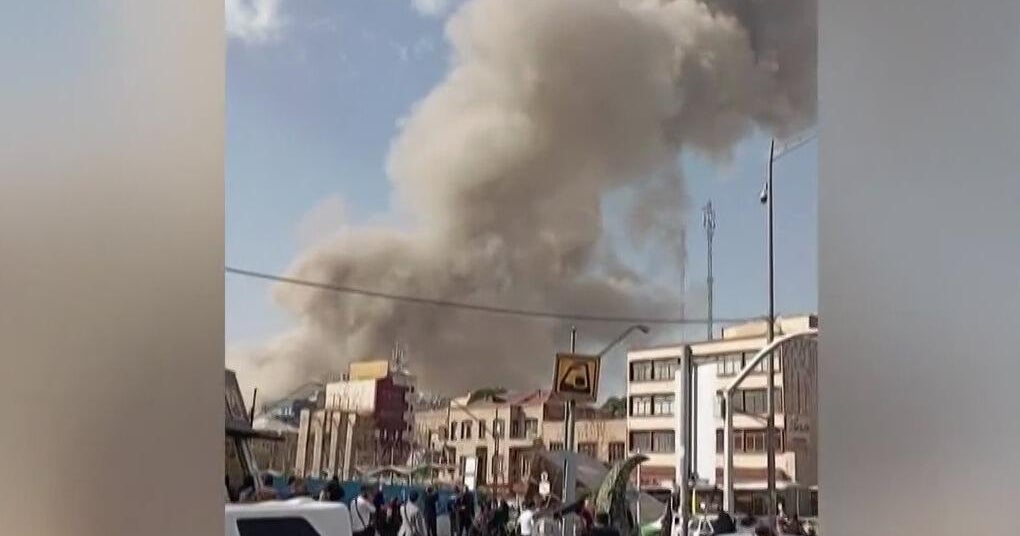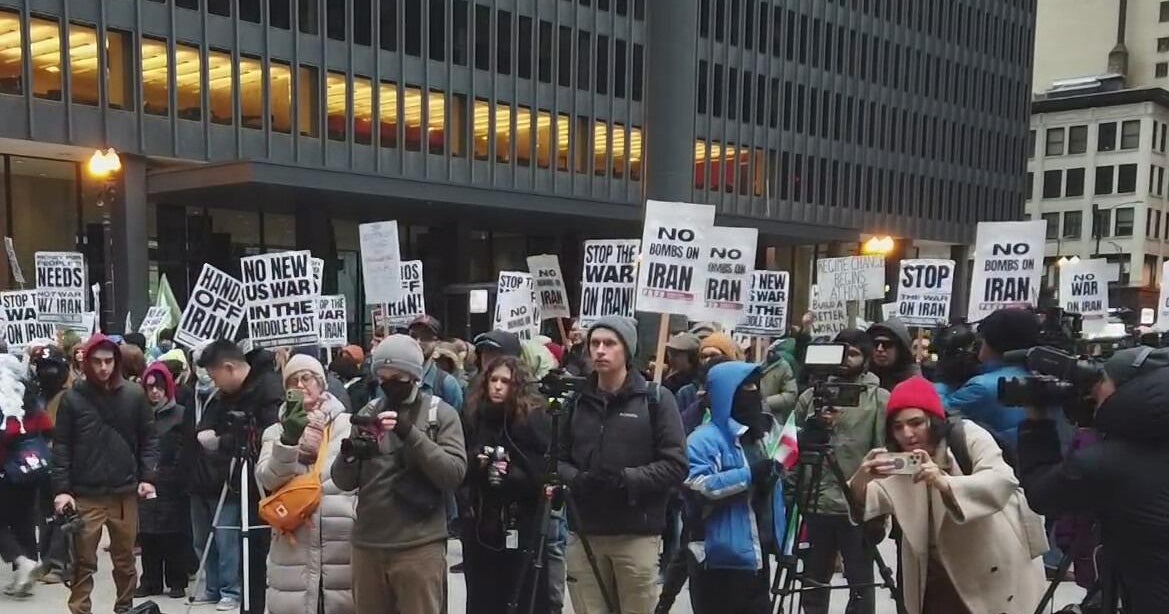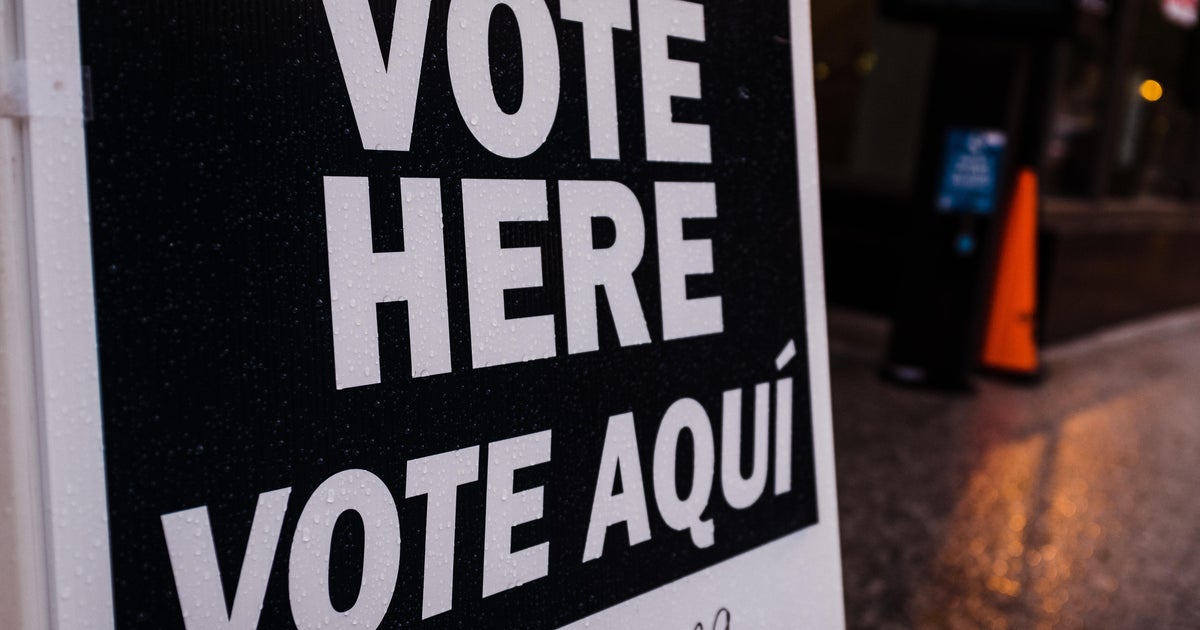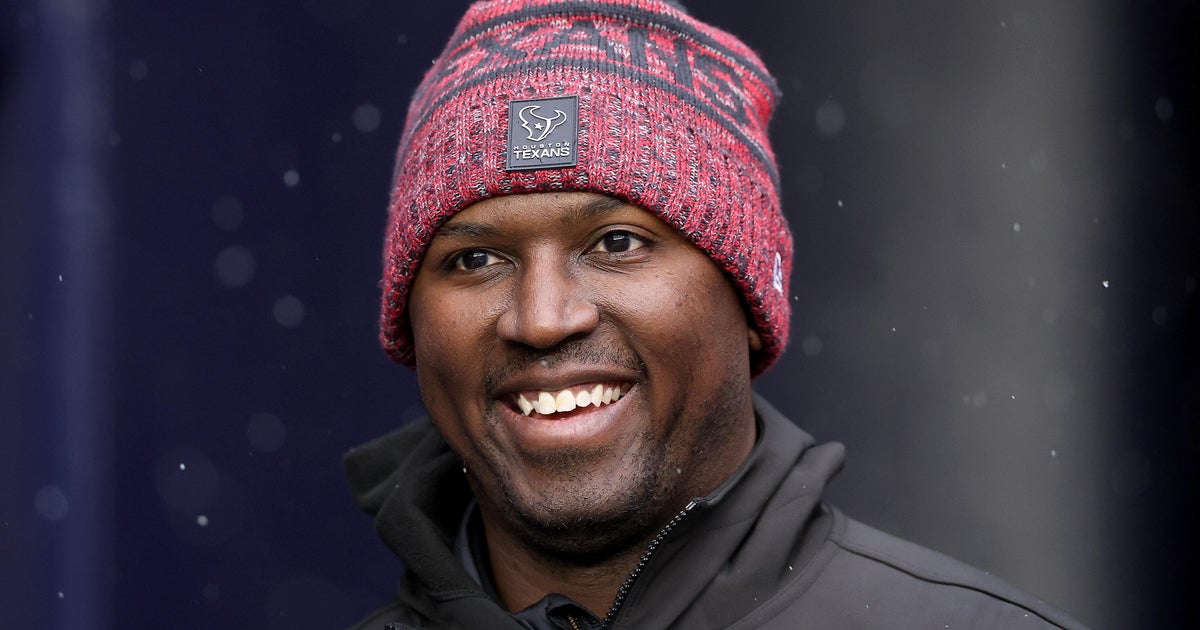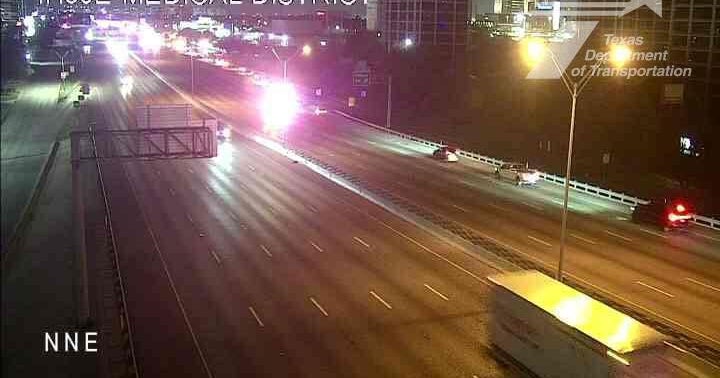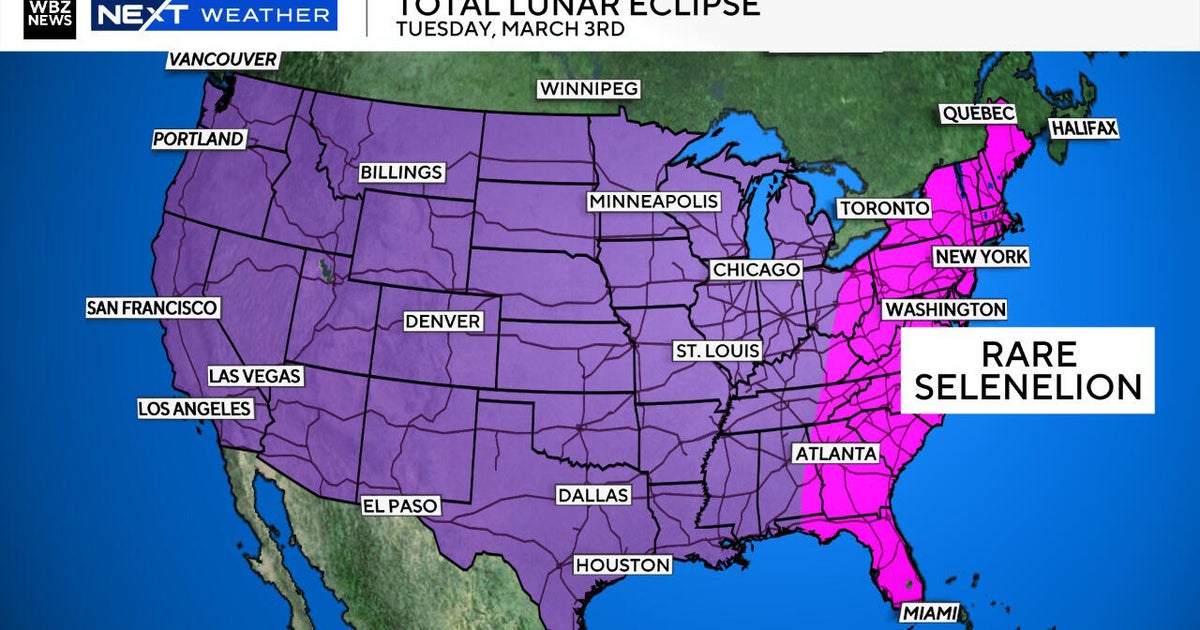Brandon Johnson wins race for mayor; Paul Vallas concedes in tight election
CHICAGO (CBS) -- Brandon Johnson defeated Paul Vallas in the runoff election for mayor on Tuesday, the Associated Press has projected.
Johnson, a former teacher and longtime Chicago Teachers Union organizer, was leading Vallas by a margin of 51.4% to 48.6%, a difference of about 16,000 votes, with about 99.6% of precincts reporting. It's the closest mayoral race in Chicago since 1983, when Harold Washington beat Bernie Epton by less than 4 points.
"They said this would never happen. So, you know, if they didn't know, now they know," Johnson said at his victory rally Tuesday night. "To the Chicagoans who did not vote for me, here's what I want you to know; that I care about you, I value you, and I want to hear from you. I want to work with you, and I'll be the mayor for you too, because this campaign has always been about building a better, stronger, safer Chicago for all the people of Chicago."
"And when I say all the people, I mean all the people, especially folks who have ever been on a payment plan," Johnson added, in joking reference to the revelation last week that he had owed more than $3,000 in unpaid water bills and parking tickets to the city of Chicago. After first saying his unpaid bills had been placed on a payment plan, Johnson later announced he had paid those bills in full. He would not have been able to take the oath of office with unpaid debts to the city.
Vallas, the former Chicago Public Schools CEO, conceded shortly before 10 p.m.
"I ran for mayor to bring the city together, and it's clear based on the results tonight that the city is deeply divided. So tonight, even though of course we believe every vote should be counted, I called Brandon Johnson and told him that I absolutely expect him to be the next mayor of Chicago," Vallas said. "This campaign that I ran to bring the city together would not be a campaign that fulfilled my ambitions if this election is going do divide us more. So it's critically important that we use this opportunity to come together, and I have offered him my full support on his transition."
In a statement, Mayor Lori Lightfoot, who came in third place in the first round of voting in the mayor's race on Feb. 28, congratulated Johnson on his win.
"It is time for all of us as Chicagoans, regardless of our zip code or neighborhood, our race or ethnicity, the creator we worship, or who we love, to come together and recommit ourselves to uniting around our shared present and future. My entire team and I stand ready to collaborate throughout the transition period. As always, I will continue to root for the city I call home, and to work toward more equity and fairness in every neighborhood. I am hopeful and optimistic that the incoming administration will carry forth our work to that end."
Johnson began his first day as mayor-elect on Wednesday greeting CTA riders at the Chinatown stop on the Red Line, thanking voters for their support.
"I'm always so impressed by just the dynamic nature of the people of Chicago, and how much they love one another. And so seeing people out this early in the morning, during spring break, it just shows you that the city of Chicago is ready for the type of transformation that has been missing for a long time," he said.
Johnson will be sworn into office on May 15.
Explore this interactive map to view how each precinct voted for Brandon Johnson and Paul Vallas in the April 4 Chicago mayoral runoff election.
Johnson, 46, was the most progressive choice in a nine-candidate field in the first round of voting in Feburary, and had trailed the more centrist Vallas in most polls leading up to Election Day. He also trailed as votes first started coming in, only to surge past Vallas as more and more ballots were counted.
His campaign was bankrolled largely by progressive public sector labor unions, in particular CTU and other teachers unions. In his victory speech, Johnson thanked his many union supporters, saying, "make no mistake about it, Chicago is a union town."
With public safety the top issue in the campaign, Johnson has vowed to fill hundreds of police officer vacancies, but has also promised to invest more money in addressing what he sees as the root causes of crime, calling for more spending on youth employment, mental health treatment, and other social services. He has vowed not to increase property taxes, while proposing new taxes that he has said will target wealthier Chicagoans, including higher taxes on high-end home sales, taxes on financial transactions, reinstating the city's employee head tax, and higher taxes on jet fuel.
Johnson called his victory "a gateway to a new future for our city."
"Tonight is just the beginning. With our voices and our votes, we have ushered in a new chapter in the history of our city. The truth is the people have always worked for Chicago, whether you wake up early to open the doors of your businesses, or teach middle school, or wear a badge to protect our streets, or nurse patients in need, or provide childcare services, you have always worked for this city. And now Chicago will begin to work for its people, all the people," he said.
Johnson's victory came despite Vallas' considerable advantage in fundraising, outraising him by a nearly two-to-one margin.
According to Reform For Illinois, Vallas raised a total of $19.89 million this campaign cycle, much of it from corporate donors who have expressed concerns about public safety in Chicago. He's also won the endorsement of several private sector labor unions, as well as the Chicago Fraternal Order of Police.
Meantime, Johnson raised about $11.53 million in contributions, thanks in large part to the support of several public sector labor unions, in particular the Chicago Teachers Union, which has given him $2.4 million. Johnson is a former teacher and longtime CTU organizer, but is currently on leave from the union and not drawing a paycheck.
The race between Vallas and Johnson has been particularly heated, and has seen controversial moments for both contenders.
As the race was drawing to a close, it came to light that Johnson owed the city thousands of dollars in unpaid bills.
It was all in black and white from the city – documentation showing Johnson owed $3,357.04 in unpaid water and sewer bills. That is in addition to the more than $400 his family owed for unpaid parking tickets. If elected, Johnson would have been unable to take the oath of office as mayor before paying off those debts.
After saying those unpaid bills were on a payment plan that would be "fully resolved" by the time he could take office, Johnson's campaign later said it had taken care of all his unpaid bills, and the city's Office of Budget & Management at City Hall confirmed he's paid off all of his debts to the City of Chicago.
Vallas faced his own share of controversy. He has come under fire after his Twitter account liked several homophobic and racist posts, and after he spoke at a fundraiser for Awake Illinois, a conservative organization known for homophobic and transphobic rhetoric.
Vallas has claimed his Twitter account was hacked, and that he didn't know about Awake Illinois' history of homophobic and transphobic rhetoric when he attended the fundraiser.
The race took an especially nasty turn about a week before Election Day, when Chicago Fraternal Order of Police president John Catanzara told The New York Times in that 800 to 1,000 Chicago police officers would resign if Johnson were to be elected, adding that there would be "blood in the streets" as a result.
Johnson dismissed the comment as ridiculous, and then segued into the FOP's support of Vallas.
"It actually speaks to the type of candidacy that my opponent is running – someone who is supported by the extreme right wing, and has caused tremendous turmoil and divisiveness," Johnson said during their final televised debate on CBS 2.
Vallas has condemned Catanzara's remarks as "absolutely irresponsible," and said the FOP would have "no influence on me" as mayor, while criticizing Johnson for remaining on the payroll of the Chicago Teachers Union, which has provided millions of dollars in funding for Johnson's campaign.
Asked how voters can be confident that he'll negotiate a fair contract between CTU and the Chicago Public Schools if elected mayor, given the union's contract with CPS expires next year, Johnson repeatedly said he has vowed to be a "mayor for all."
Johnson is a former Chicago Public Schools teacher and a CTU organizer – now on leave from his union job, and not drawing a CTU paycheck. According to the watchdog group Reform Illinois' database, the CTU's political action committee has donated $2.4 million to Johnson's mayoral run.
The CTU's contract is up next year. If elected, Johnson has said his fiduciary, or financial, duty will be to every Chicagoan.
How can he assure voters that he would not give the CTU a so-called sweetheart deal at the expense, potentially, of taxpayers – but would take all factors into consideration?
"That's exactly what I said. That is the assurance. You tell people the truth – and I've done this as a Cook County commissioner," Johnson told CBS 2's Dana Kozlov.
Unlike his opponent Paul Vallas – who proposes repurposing underutilized public school buildings and even moving current students to other schools – Johnson wants to fund every existing school fully.
How does he plan to do that without raising property taxes, as he has promised?
"It is not the only revenue source. We have a funding formula – a new one that I helped organize – to change and shift. That funding formula is based on need – not per pupil," Johnson said.
Meantime, Vallas indicated closing public schools – in their current form – may be on the table.
"If you have a school with a fraction of the enrollment that they should have, what I'm saying in the simplest terms is to sit down with the community, and ask the community how that school can be repurposed," Vallas said.
Vallas – who served as chief executive officer of the Chicago Public Schools from 1995 until 2001 – wants communities to have a strong say in how their shuttered and under-enrolled school buildings are used. He advocates using them for alternative educational schools.
But in discussing the issue, that is where he usually stops.
Kozlov: "Is there a scenario in which you could see yourself advocating for the closure of more CPS schools?"
Vallas: "I don't see a need to close any of these buildings, because I believe you can expand the campuses to house more programs. The big issue in those communities is the closing of the building; the closing of the facility to the community."
Kozlov: "Well no, the big issue, actually – and I was around and covered the 50 school closures – the big issue is that many of the folks in these communities say that was devastating to their communities – to take away their neighborhood schools and force them to travel, instead of a few blocks, a few miles to school. So what I'm asking is, is there truly a scenario where you see completely closing down any CPS school?"
Vallas: "I think what I'm saying is CPS needs to expand its alternative schools, and they need to use those underutilized, underpopulated buildings."
Vallas has been vilified by the Chicago Teachers Union - which is backing his opponent, Brandon Johnson. The CTU's contract is up next year.
Kozlov: "How would you work with the CTU when the contract is up?"
Vallas: "My approach is to negotiate – not through surrogates, but directly."
Vallas has faced his own share of scrutiny over how he would handle public education in Chicago, as he has promoted his record running Chicago Public Schools, as well as school systems in Philadelphia, New Orleans, Connecticut, and Haiti.
However, he's also been criticized for expanding charter schools, and for failing to improve outcomes for the lowest-performing students at the districts he's run. He's also known for using financial gimmicks, particularly controversial interest rate swaps and pension holidays to balance school budgets, leaving districts in precarious financial condition after he left.
Vallas has contended such criticisms are "absolutely false," while saying he wants to "decentralize" funding for CPS, claiming only 60% of its funding finds its way into the classroom. He also has pushed for school buildings to remain open through dinner hours and on weekends, the holidays, and summer months to bring in trade unions for work study programs for students.
Johnson – who has spoken of fully funding schools irrespective of enrollment, opposed losing under-enrolled schools, called for adding behavioral therapy programs, and robust programming to address student trauma – has said the money is already there to fund those initiatives.
Johnson said he has fought to base the funding formula for schools on need, rather than a per-pupil basis, claiming it would provide an additional $1.2 billion for CPS.
"We literally have enough money for everyone in the city of Chicago when it comes to public education," he said during the CBS 2 debate. "There is more than enough to make sure that we are fully funded in our schools, fully invested in every aspect of their development."
Meantime, public safety has been a dominant theme of the mayoral race, with polls consistently showing crime as the top concern of Chicago voters.
Vallas has said he wants to fill 1,600 police vacancies within two years, and has said he's convinced hundreds of officers who have left the department in recent years will come back under new leadership.
But experts have said there is a nationwide shortage of officers, and not all who want to come back to CPD will qualify, raising questions about whether Vallas can truly bring back so many officers who have left.
During a debate on WGN-TV, Johnson called Vallas' promise "ridiculous."
As for his own plans for the Chicago Police Department, after declining for months to commit to filling approximately 1,600 vacant police positions in Chicago, Johnson said at a Fox 32 mayoral forum that he would.
"Obviously those vacancies need to be filled," Johnson said, while adding that police departments across the country have faced challenges filling vacancies.
Johnson has repeatedly said, to ease the burden on CPD, he wants to hire mental health professionals to respond to 911 crisis calls instead of having police officers do it. He also wants to promote 200 current officers to detective to help solve crimes.
Johnson says both actions would help support the remaining officers on the street.

